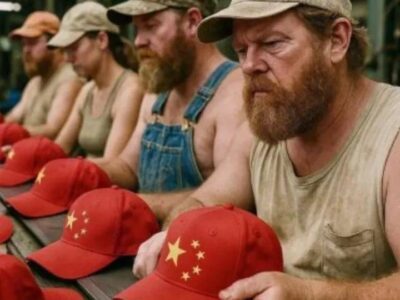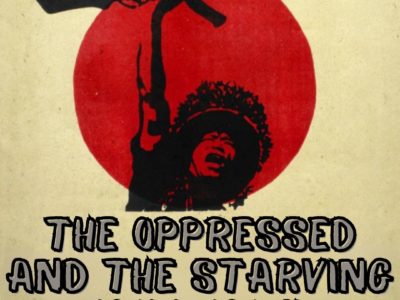The notion of imperialism, so easily used to account for the oppression of one country by another, needs to be revisited. We do so here in the knowledge that we are attacking an almost untouchable concept in the field from which we claim. Let us begin by questioning the origins of the concept for Marxists.
Lenin was mainly inspired by the writings of John Atkinson Hobson (1858-1940) when he wrote his essay “Imperialism, the Highest Stage of Capitalism” (1916). Hobson, an English social-democrat and Labourite, was particularly critical of English imperialism. For Lenin imperialism arises from the high development of capitalism which concentrates capital in a few big enterprises or monopolies. The merger of industrial enterprises and banks leads to the formation of finance capital and its hegemony. The growing export of capital manifests itself among other things in the internationalisation of monopolies which become multinational firms with the creation of branches or subsidiaries in different parts of the world. Financial imperialism is replacing the territorial division of the planet between great powers or colonial imperialism. However, the logic of both is the over-accumulation of capital through industrial concentration and the decrease of competition which generates growing profits for the capitalists and stagnation of income for the rest of the population. Thus a contradiction inherent in the development of capitalism appears, which consists in the appearance of brakes to its internal expansion due to the stagnation of purchasing power with the emergence of monopolies. The export of capital, i.e. the need to invest across borders, then emerges as a way of overcoming this fundamental contradiction of the capitalist system which comes to hold back its development when it reaches the stage of monopolies.
The problem is that this reasoning is based on statistics that have been misinterpreted. With the same data from Hobson and Lenin (and other sources) it can be deduced that the main empires of the 19th and early 20th century, Great Britain and to a lesser extent France, and then Germany-the amount of foreign investments of the USA until then was insignificant-were not exporters of capital, but on the contrary importers. The data available at that time, 1870 to 1914, only showed the amount of foreign investments of the investing countries and did not take into account the repatriation of profits to remunerate the investors. Any increase was seen as an increase in exported capital. However, a simple reasoning based on a 4 or 5% annual profitability assumption yields a totally different reality. The profits thus estimated more than compensated for the increase in the value of new capital exports, so that the net result was that the investing countries were net importers of capital and not exporters. Thus the thesis of the plundering of the capital of the countries receiving the investments is completely demolished. Does this mean that economic imperialism, and in particular American imperialism, is a myth? No, three times no! The exploitation, the plundering of Third World countries (and not only of them) like Chile is the product of two different things:
- Commercial imperialism
- The use of the American dollar as the currency of international payment.
The first involves adopting the thesis of unequal exchange as formulated by Arghiri Emmanuel in 1969. Inequality stems from differences in the institutional remuneration between rich and poor countries-wage, income and indirect taxes-of the factors involved in the production of a good. It is usually only the wage differential. Rich countries sell high because they have high wages and poor countries sell low because they have poverty wages. The best proof of this is oil. In 1973, with the war between Israel and the neighbouring Arab countries, OPEC, which brings together the oil-exporting countries, decided to increase the royalties paid by the companies that exploit this product and the price rose considerably and since then they have not refrained from increasing the royalties or restricting production in order to increase the price. It should be noted that it was not a question of increasing wages, but of another institutional factor such as a tax to raise the price. In this way, these countries have overcome the inequality of trade and have reached the living standards of rich countries. The second, although today they are not the only ones to do so, is that of being the issuers of the most widely used international currency. In this way, they will never be constrained to align goods for a value equivalent to the counterpart of this currency simply because the dollars in circulation abroad are used in transactions that do not concern them, between third countries, or within some countries, where they circulate in parallel to the national currency. Added to this is the detention of dollars in paper money in the rest of the world, used both for transactions and as a store of value. Paying with its own currency abroad allows the US to largely escape the adjustments that any other country that must procure the currency of international payment must impose on itself, or is imposed on it, when its accounts become unbalanced. This invitation to run deficits, since it escapes any form of sanction, has led to a situation of chronic trade deficit since the mid-1970s. This means that, for an amount equivalent to this deficit, they live off the backs of the rest of the world, consuming goods that they do not produce. This form of gift is not negligible, the annual deficit amount is in the order of one twentieth of the world’s GDP. This power to shelter goods from the rest of the world is not limited to this one item. It also allows them to buy property titles in the rest of the world, i.e. to make foreign direct and financial investments. Some countries such as China, Brazil and Argentina have begun to challenge the supremacy of the dollar by trying to organise alternative forms of payment.
Originally published in the journal of Chilean Diaspora in France, “Kahuin”.










